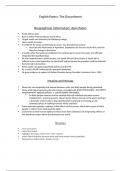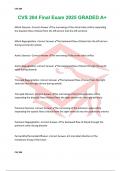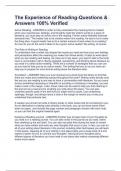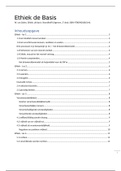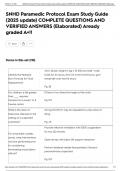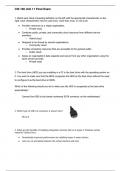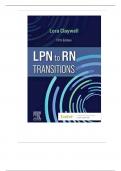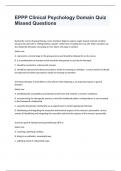Biographical information: Alan Paton
South African poet
Born in 1903, Petermarisburg, South Africa
Taught maths and chemistry at Marisberg college.
Had a switch in career.
In 1948/49; he wrote a world-famous novel, "Cry the beloved country”.
Accounts the inhumanity of Apartheid. Emphasises his love for South Africa and his
hope for change in the future.
4 months after the book was published, the national party came into power and officially
integrated the Apartheid laws.
He then helped found a political party, the South African Liberal Party of South Africa
(offered a non-racial opposition to Apartheid) and he became its president until the National
Party forced it dismember.
Paton spoke out against Apartheid policies and the NP.
As a result, the NP confiscated his passport (dompass)
He gave evidence in support of Nelson Mandela during Mandela's freedom trial in 1960.
Meaning and Message
Shows the vast inequality that existed between white and black people during Apartheid.
Many white ppl prospered under this system, provided with good education, excellent
employment opportunities + comfortable lifestyles.
to Black people however had to satisfied with sub-standard education menial
employment + extreme poverty. Shown by the African woman in the poem (perhaps
a domestic worker) who is disproportionately overjoyed of receiving an old,
unwanted piece of clothing from her white employer.
Poem expresses speaker's sadness at the effects of this system, which self-respect of black
people (+ other P.O.C) destroyed the rights.
Comments on how human rights and values have been distorted, the long-lasting effects of
the Apartheid system which has destroyed our world.
Structure
Free verse poem
varied line length
highlights the chaos of the scene + her reaction.
shows literal disparity between white and black people during Apartheid.
Represents a fragmented + broken society.
, Title
Discard
To throw something away
No longer wanted
Useless
Abandoned
Literally an item of clothing that the white speaker gives to a black domestic worker.
Could be seen as a reference to black people during Apartheid who were discarded by the
government who labelled them as inferior.
"the": definite article
Refers to one item of clothing that prompted the women's overjoyed reaction.
Holds the Apartheid government directly responsible.
Stanza 1
Lines 1:
"we": The white employer verses the "her”.
Effects: Differentiation/divide which is immediately established
Lines 2:
Clothing that is no longer wanted by the employer, its trashed them.
Trifle: Object of little importance
"thing": holds no value/worth/respect (employers are bored with it)
Emphasises how small and insignificant the item is therefore the women's reaction is
disproportionate.
Lines 3:
Only to the employers
Emphasises the vast gap between white and black South Africans because the
privileged whites can afford to be bored of things and give them away to poor black
people.

